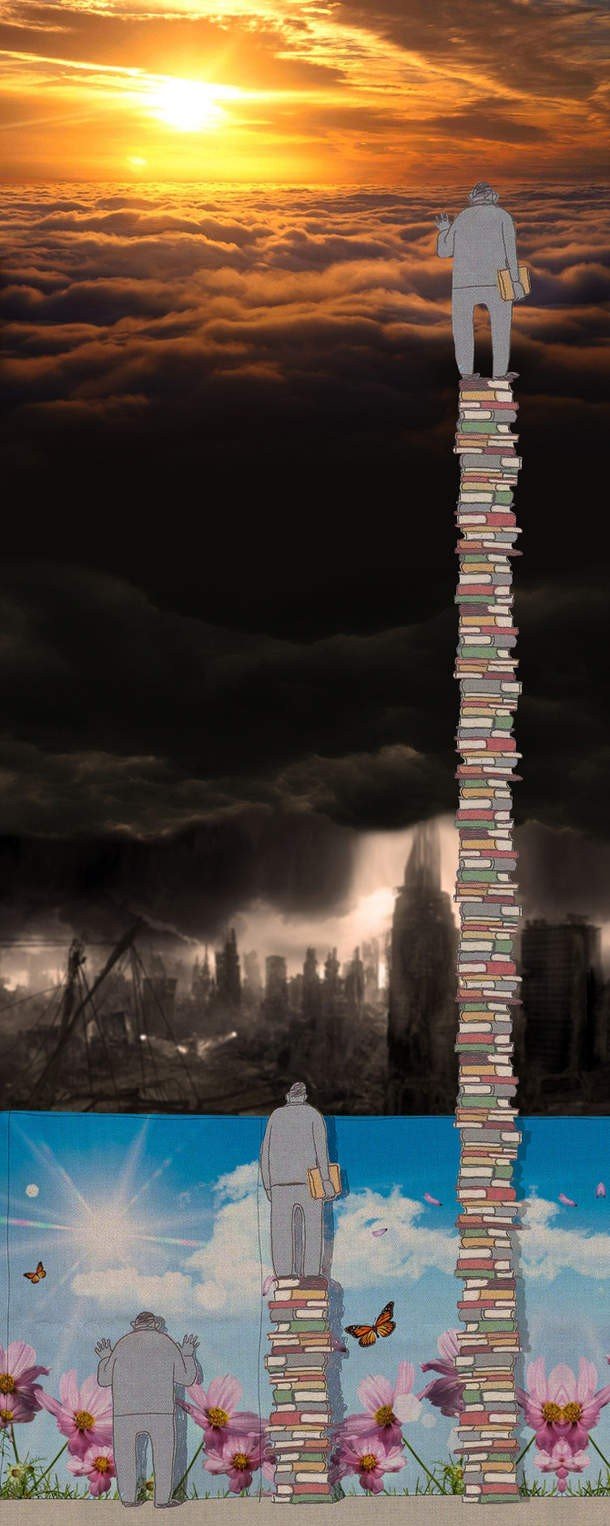Those who merely know about things, or only think they know, live in a state of self-conditioned and culturally conditioned somnambulism. Those who understand given reality as it presents itself, moment by moment, are wide awake.
-Aldous Huxley, Knowledge & Understanding (1952)
Today’s lecture, this image, as
well as the quote above really got me thinking about our society and if you
combine them all I feel like it give off the current state of our society but
with a majority being on the lowest stack unable to aspire to grander things. Both
these pieces of art gave me the idea that the mass majority only learns to know
trivial information for the sake of fitting in and not out of the necessity of
understanding their own respective universe such as the people on the first
stack of books blinded by what society wants them to see. The people who are
awake lie on the second stack of books and see a morbid picture of society of
what it actually is and become petrified from that point on, no longer trying
to be the trailblazer of their universe but rather suffer in self-pity for
being placed in such a world. (This second stack I believe many of my peers to
be on and have been sidetracked by this morbid picture, no longer wishing to
move forward.) The people who are on the 3rd stack aren’t awake but
rather dreamers who see this reality and toss it aside and tread onward with
aspirations of making their universe as well as others improved by great
lengths. This being the pinnacle for education in which they are able to see
past the painted picture and morbid reality of society and onward to greater
horizons.
